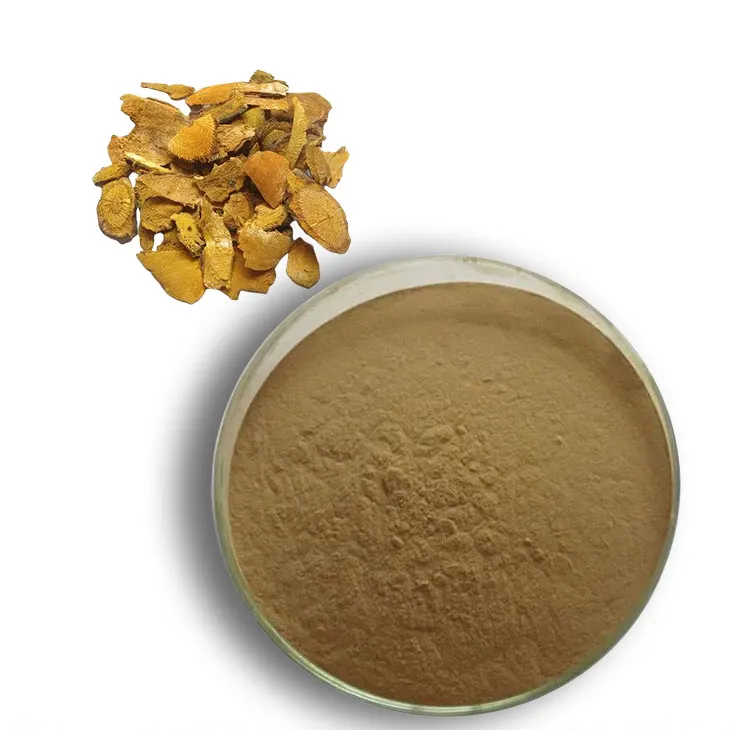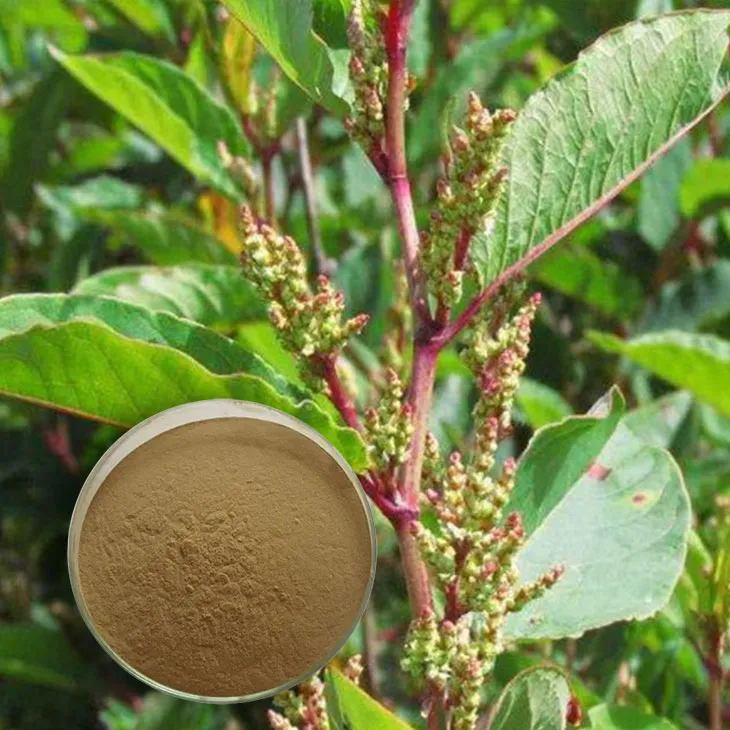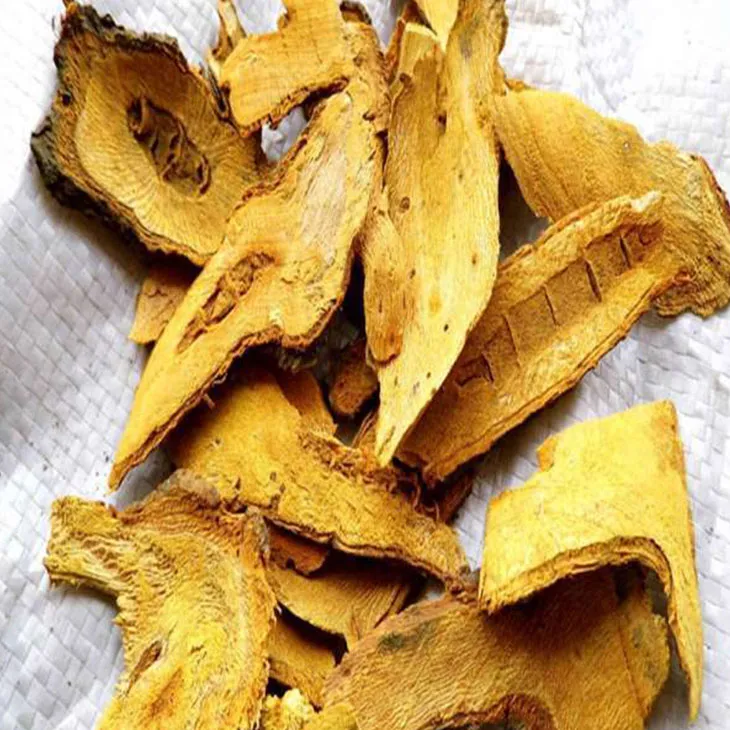- 0086-571-85302990
- sales@greenskybio.com
Bulk Manufacturers and Exporters of Polygonum Cuspidatum Extract.
2024-12-18

1. Introduction to Polygonum Cuspidatum Extract
Polygonum Cuspidatum Extract, a natural product rich in various bioactive components, is attracting the attention of an increasing number of industries worldwide. It contains substances such as resveratrol, which has antioxidant, anti - inflammatory, and other beneficial properties. This makes it highly valuable in fields like pharmaceuticals, cosmetics, and dietary supplements.

2. The Role of Bulk Manufacturers
2.1 Production Scale and Efficiency
For manufacturers, production scale and efficiency are crucial competitive factors. Large - scale mass production can reduce costs and enhance market competitiveness. To achieve this, they are constantly optimizing production processes and introducing automated equipment to increase production while ensuring quality. For example, modern manufacturing facilities are designed to handle large quantities of raw materials, such as polygonum cuspidatum plants, in an efficient manner. The use of advanced machinery allows for precise extraction processes, minimizing waste and maximizing the yield of the active ingredients.
2.2 Technological R & D
Manufacturers also focus on technological research and development. They are continuously exploring new extraction techniques and improving the extraction rate of active ingredients. Resveratrol extraction, for instance, is a key area of research. Scientists are constantly looking for better ways to extract resveratrol from polygonum cuspidatum. This involves studying different solvents, extraction temperatures, and extraction times. By improving the extraction rate, manufacturers can meet the growing market demand more effectively. New extraction technologies, such as supercritical fluid extraction, are also being explored. This method has the potential to provide a more efficient and environmentally friendly way of extracting the active components from polygonum cuspidatum.

3. The Challenges and Strategies of Exporters
3.1 Exchange Rate Fluctuations
As exporters, they face a complex international trade environment. One of the major challenges is dealing with the risks brought about by exchange rate fluctuations. Exchange rate changes can significantly affect the price competitiveness and profit margins of products. For example, if the domestic currency strengthens against the currencies of major importing countries, the price of Polygonum Cuspidatum Extract in foreign markets will increase in relative terms. This may lead to a decrease in demand as the product becomes less price - competitive. To mitigate this risk, exporters can use financial instruments such as forward contracts or currency options. They can also diversify their export markets to reduce their exposure to a single currency.
3.2 Cultural Differences
Cultural differences also play an important role in marketing. Different countries have different levels of awareness and acceptance of polygonum cuspidatum extract. In some regions, it may be regarded as a traditional herbal extract and is readily accepted. For example, in some Asian countries with a long history of using traditional herbal medicine, polygonum cuspidatum extract may be well - known and widely used in traditional remedies. However, in other regions, more scientific popularization and market promotion may be required. Exporters need to understand the cultural backgrounds of different target markets and develop tailored marketing strategies. This may include using different product names, packaging designs, and marketing messages to appeal to local consumers.
3.3 Trade Policy Changes
Exporters also need to pay close attention to trade policy changes, such as tariff adjustments and import - export restrictions. Tariffs can directly affect the cost of exporting products. An increase in tariffs may make the product more expensive in foreign markets, reducing its competitiveness. Import - export restrictions, such as quotas or bans on certain substances, can also have a significant impact on the export business. To adapt to these changes, exporters should stay informed about the latest trade policies of relevant countries and international organizations. They can also participate in industry associations and lobbying efforts to influence trade policy in a favorable direction. In addition, they may need to adjust their business strategies in a timely manner, such as exploring new export markets or diversifying their product lines.

4. Quality Control in the Production and Export of Polygonum Cuspidatum Extract
Quality control is essential throughout the production and export process of polygonum cuspidatum extract. Manufacturers need to ensure that the raw materials are of high quality. This involves sourcing polygonum cuspidatum plants from reliable suppliers and conducting strict inspections on the incoming raw materials. During the extraction process, strict quality control measures should be implemented to ensure that the active ingredients are extracted accurately and that the final product meets the required standards. For exporters, they need to comply with the quality requirements of different importing countries. This may include obtaining relevant certifications, such as Good Manufacturing Practice (GMP) certifications or quality certifications specific to the target market. Quality control also extends to packaging and labeling. The packaging should be designed to protect the product from damage and deterioration during transportation and storage. The labeling should accurately provide information about the product, including its ingredients, usage instructions, and safety warnings.
5. Market Trends and Future Prospects
The market for polygonum cuspidatum extract is showing several trends. In the pharmaceutical industry, there is an increasing interest in its potential health benefits, especially in the area of chronic disease prevention. In the cosmetics industry, it is being used more and more in anti - aging and skin - care products due to its antioxidant properties. In the dietary supplement market, consumers are becoming more aware of the natural and health - promoting properties of polygonum cuspidatum extract, leading to a growing demand.
Looking into the future, the prospects for polygonum cuspidatum extract are promising. As research continues to uncover more of its bioactive components and their functions, its applications are likely to expand further. However, manufacturers and exporters will need to continue to adapt to market changes, improve product quality, and develop effective marketing strategies to fully realize the potential of this natural product.
FAQ:
What are the key factors for bulk manufacturers of Polygonum Cuspidatum Extract?
For bulk manufacturers, production scale and efficiency are crucial competitive factors. Large - scale production can reduce costs and enhance market competitiveness. They continuously optimize production processes and introduce automated equipment to increase output while ensuring quality. In terms of technology research and development, they keep exploring new extraction techniques and improving the extraction rate of active ingredients, such as finding better ways to extract resveratrol from Polygonum Cuspidatum to meet the growing market demand.
How do exporters of Polygonum Cuspidatum Extract deal with currency exchange rate fluctuations?
Exporters can use various financial tools such as hedging to deal with the risks brought by currency exchange rate fluctuations. They may also adjust their pricing strategies according to the exchange rate changes to maintain the price competitiveness of their products and protect their profit margins.
What role does cultural difference play in the marketing of Polygonum Cuspidatum Extract for exporters?
Cultural differences play an important role in marketing. Different countries have different understandings and acceptance levels of Polygonum Cuspidatum Extract. In some regions, it may be regarded as a traditional herbal extract, while in other areas, more popular science and market promotion may be required.
How can exporters of Polygonum Cuspidatum Extract adapt to changes in trade policies?
Exporters need to closely monitor trade policy changes, such as tariff adjustments and import - export restrictions. They can adjust their business strategies in a timely manner, for example, by looking for alternative markets, optimizing product portfolios, or strengthening cooperation with local partners to ensure continuous development in the international market.
What are the main challenges faced by bulk manufacturers in ensuring product quality?
Bulk manufacturers face challenges such as ensuring the consistency of raw materials, controlling the extraction process precisely, and meeting strict quality standards. They need to establish a reliable raw material supply chain, implement strict quality control systems during the production process, and conduct regular quality inspections to ensure that the final product meets the required quality standards.
Related literature
- Study on the Extraction Technology of Polygonum Cuspidatum Extract"
- "The Market Potential of Polygonum Cuspidatum Extract in the Global Health Industry"
- "Polygonum Cuspidatum Extract: Production, Quality Control and Export Strategies"
- ▶ Hesperidin
- ▶ Citrus Bioflavonoids
- ▶ Plant Extract
- ▶ lycopene
- ▶ Diosmin
- ▶ Grape seed extract
- ▶ Sea buckthorn Juice Powder
- ▶ Fruit Juice Powder
- ▶ Hops Extract
- ▶ Artichoke Extract
- ▶ Mushroom extract
- ▶ Astaxanthin
- ▶ Green Tea Extract
- ▶ Curcumin
- ▶ Horse Chestnut Extract
- ▶ Other Product
- ▶ Boswellia Serrata Extract
- ▶ Resveratrol
- ▶ Marigold Extract
- ▶ Grape Leaf Extract
- ▶ New Product
- ▶ Aminolevulinic acid
- ▶ Cranberry Extract
- ▶ Red Yeast Rice
- ▶ Red Wine Extract
-
Avocado Extract Powder
2024-12-18
-
Beta Carotene
2024-12-18
-
Lycopene
2024-12-18
-
Fenugreek Extract Powder
2024-12-18
-
Acerola Juice Powder
2024-12-18
-
Agaricus Blazei Extract
2024-12-18
-
Yellow Pine Extract
2024-12-18
-
Mulberry Extract
2024-12-18
-
Ginger Extract
2024-12-18
-
Boswellia Serrata Extract
2024-12-18





















